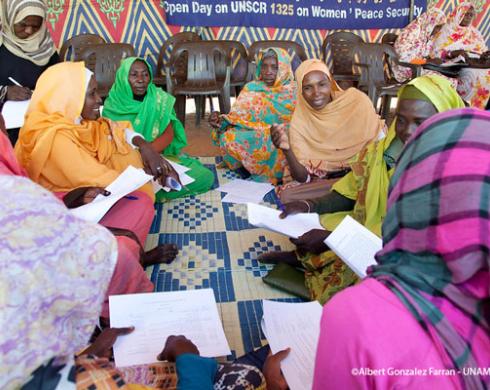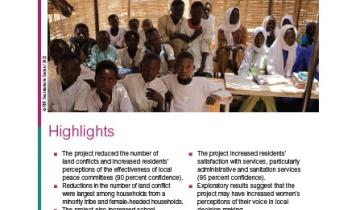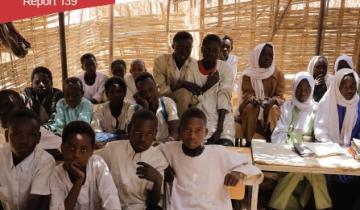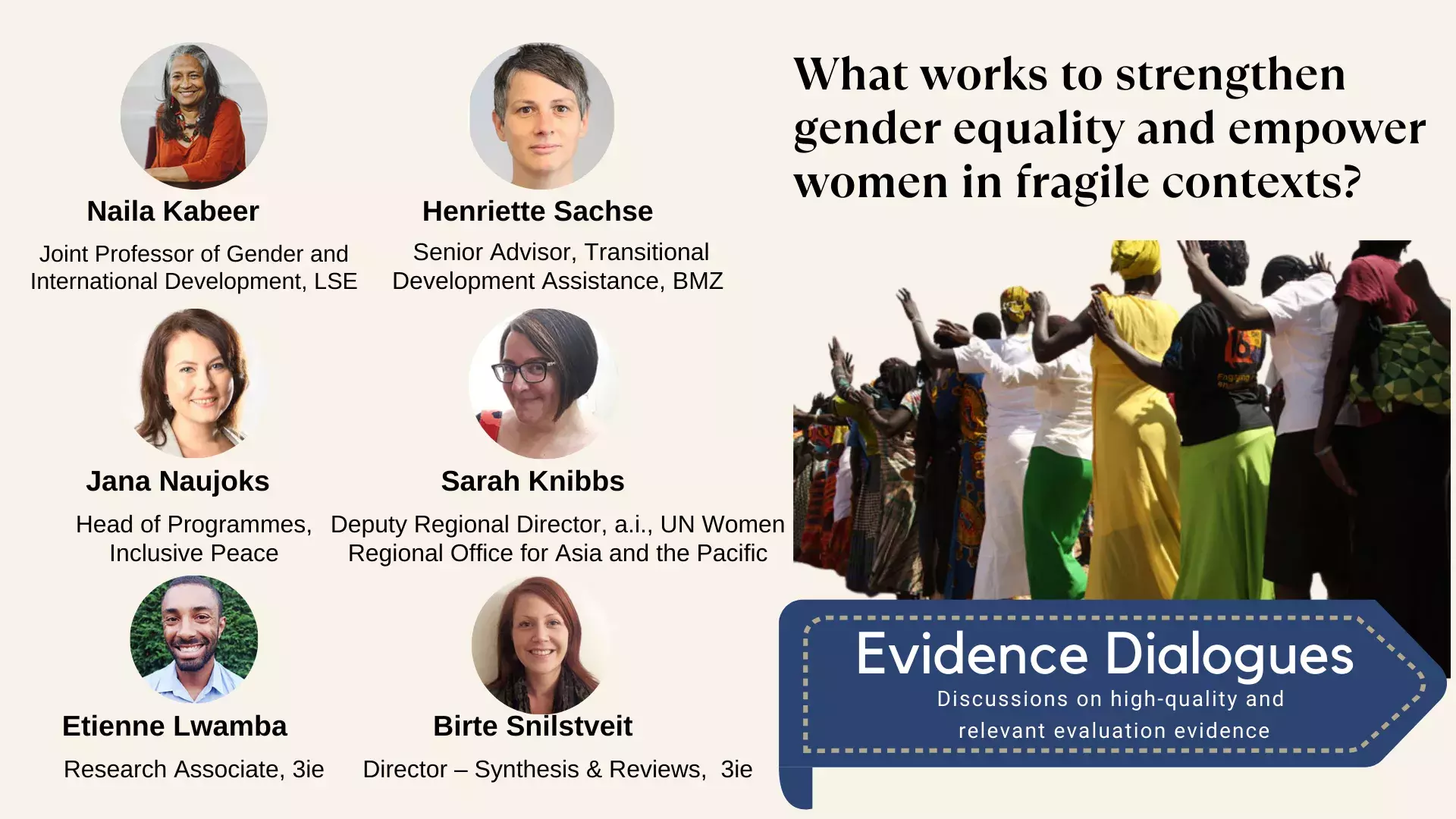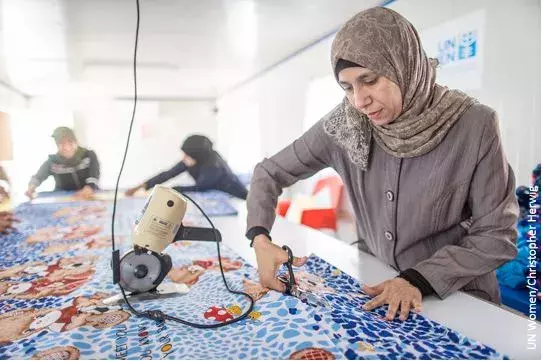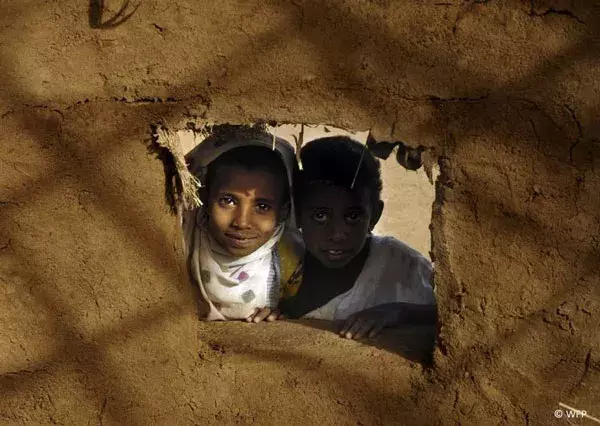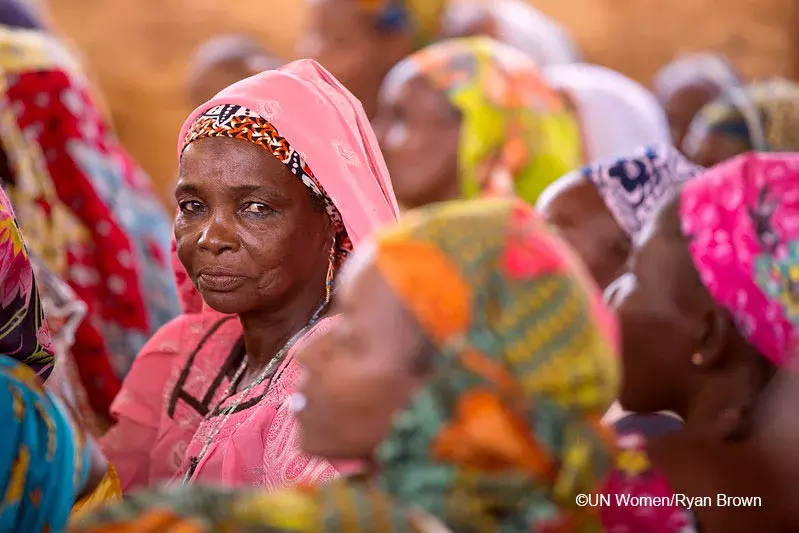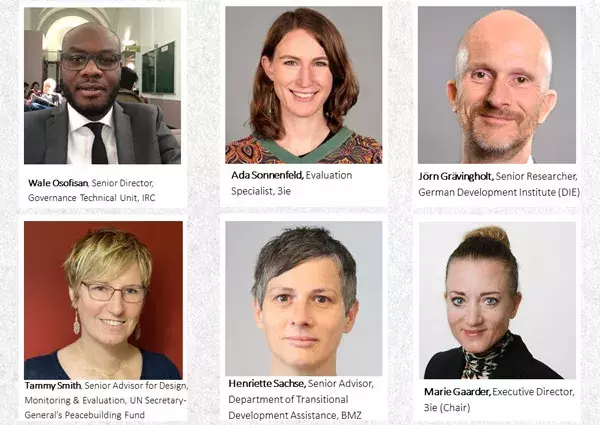Peacebuilding
Fragility has expensive, long-term consequences and trying to build peace in situations of protracted conflicts is becoming the norm. In 2020, 1.8 billion people – nearly a quarter of the world's population – were living in situations of fragility. In many contexts, multidimensional threats to human security exacerbate tensions across social cleavages. Social cohesion is widely considered important in building sustainable peace in fragile contexts. Around 40 per cent of Official Development Assistance (ODA) -- upwards of USD 56 billion -- is invested in fragile contexts. We are mapping evidence gaps and supporting syntheses of rigorous evidence to help improve the effectiveness of policymaking, programming and research into securing and building peaceful societies.
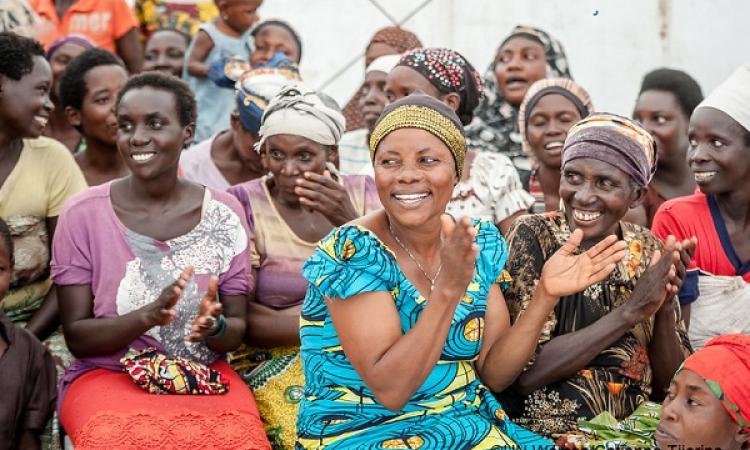
Program
Generating and disseminating evaluation evidence with the UN Peacebuilding Fund
To generate new evidence on peacebuilding and encourage more evidence-informed decision-making in the field, in 2021 3ie and the International Security and Development Center launched a new evidence program focused on the work of the United Nations Peacebuilding Fund (PBF). The Peacebuilding Fund Impact Evaluation, Learning and Dissemination (PeaceFIELD) initiative is organized around three pillars: 1) capacity development, 2) impact evaluations, and 3) policymaker engagement.
The initiative is working on impact evaluation case studies in Guatemala, on the Mali/Niger Border, Sierra Leone/Guinea border, and Sudan. Impact evaluation cases were selected with an eye toward addressing key thematic learning priorities of the PBF: issues related to land tenure; women's role in peacebuilding; security sector reform; and local justice mechanisms. The PeaceFIELD team has traveled to Sudan, Guatemala, Niger, Sierra Leone, and Guinea to work with data collection partners supporting these evaluations.
The team’s first completed impact evaluation shows that a PBF-supported project in East Darfur, Sudan reduced the number of land conflicts, increased school enrollment, and improved perceptions of service provision. These findings, the first to evaluate this type of bundled UN-supported peacebuilding programming, are already informing policy discussions among UN partners in Sudan and New York. Read learning brief | Read impact evaluation report
Alongside the impact evaluation work, the initiative has conducted capacity-sharing events to share evaluation skills with UN colleagues and other partners. The team's virtual training for Sudan partners and in-person training in Guatemala City have provided practical, hands-on instruction on planning and conducting impact evaluations, drawing examples from the real ongoing impact evaluations in those contexts.
Disseminating key peacebuilding evidence is also a priority of the initiative, and the team has conducted numerous virtual and in-person presentations with policymakers at the United Nations, donor nations, and in the evaluation community.
The initiative has received funding from the German Federal Foreign Office and Global Affairs Canada.
 |  |
Projects
Building Peaceful Societies evidence gap map
Drawing on the analysis of 275 studies, the Building Peaceful Societies evidence gap map identifies where evidence exists for use in program design, and where the gaps are for future research to address. The map updates and expands on the framework used in 3ie’s 2015 Peacebuilding map to highlight the changing approaches to building peace and resilience and continuing evidence gaps. 3ie developed the map in collaboration with the German Institute for Development Evaluation (DEval) with support from the German Federal Ministry for Economic Cooperation and Development (BMZ).
View map | Read report | Read brief
Read blog: Securing and building peaceful societies: Where is the evidence, and where is it missing?
Webinar: What do we know about interventions for building peaceful societies? What don't we know?
Strengthening intergroup social cohesion in fragile situations: a systematic review
The literature suggests that higher levels of trust, a shared sense of belonging and acceptance of diversity, and norms around community help and participation – key components of social cohesion – can create mechanisms to mediate or manage potential conflicts between groups across social cleavages. With support from BMZ and the German Organisation for International Cooperation (GIZ), this new mixed-methods 3ie systematic review examined the evidence from 36 impact evaluations based on 24 studies to understand which strategies to strengthen intergroup social cohesion are effective for which populations in which contexts. The reviewers collected quantitative and qualitative data from the included studies and used statistical meta-analysis and realist-informed framework synthesis to analyse the findings.
Download a presentation on the systematic review here.
Read the SR brief: In fragile situations, which interventions strengthen intergroup social cohesion?
Read the blog: Peacebuilding programs are stronger when informed by evidence, despite the constraints of their environments
3ie Evidence dialogue: Use of evidence in peacebuilding and transitional development assistance
Strengthening women’s empowerment and gender equality in fragile contexts
This 3ie systematic review, also supported by the BMZ, focuses on identifying approaches that can improve women’s status in fragile and conflict-affected settings. It responds to the evidence gap identified in the Building Peaceful Societies evidence gap map by assessing the effects of a broad range of gender-specific and transformative interventions on women’s empowerment and gender equality in fragile and conflict-affected states and their contribution to building peaceful and inclusive societies. Interventions are classified based on the four pillars of the United Nations Security Council Resolution 1325 (Participation, Protection, Prevention, Recovery and Relief) and the review examines their outcomes across the three dimensions of women’s empowerment (Resources, Agency and Achievements). The review seeks to inform policy and practice decisions within the field of transition aid, particularly as it relates to gender-focused programming.
Download a presentation on the systematic review here.
SR Report | SR Brief | SR Protocol
Read blog What works to empower women in fragile settings?
Read blog Why we need qualitative evidence in systematic reviews: the case of the Gender SR
Read the blog: A systematic approach to building the evidence base for gender equality and women’s empowerment in fragile contexts
For more information, please write to elwamba@3ieimpact.org.
